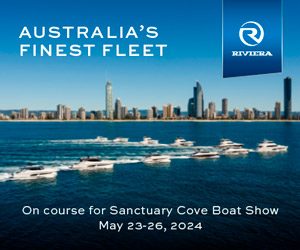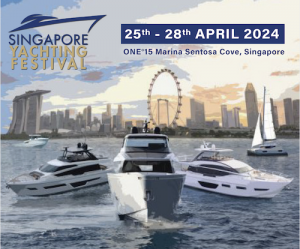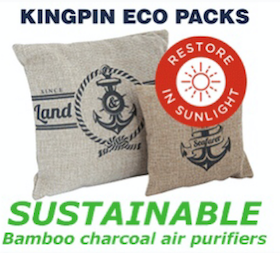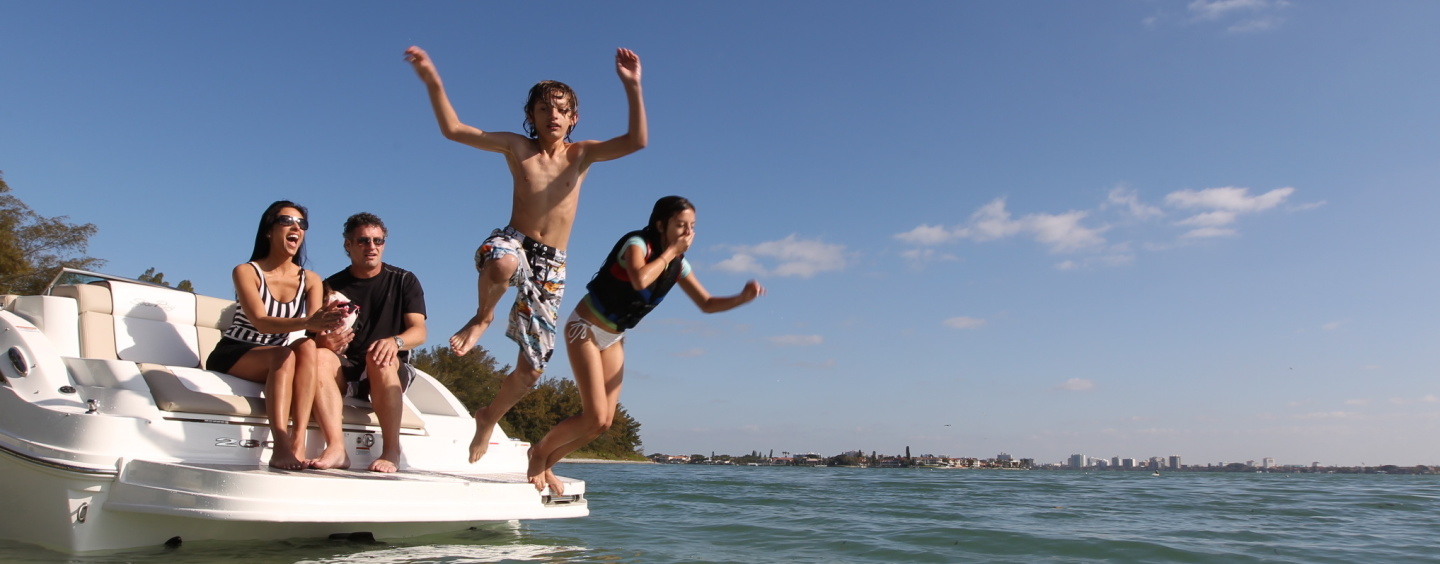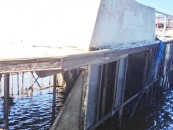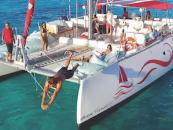What motivates you to boat? What matters most to you as an advocate of recreational boating and as a steward of the waterways? How can you become a collaborative partner in the policy and strategy changes that impact your safety and enjoyment on the waters? What is it about your unique boating experience that you want to share with those not engaging in the activity or not familiar with boating?
We had the privilege to be part of many significant boating industry events, international and local. The insights and learnings we obtained are invaluable. With many expert presentations and notable comments made during these events, the information on recreational boating, both as an industry and as a universal leisure interest, surpasses political and geographical boundaries.
The concepts like “digital disruption”, “millennials”, “share economy” and the “waves of change” are the key focus of where the future of recreational boating is going. Looking forward, we deemed it important to also re-focus on the core concepts that relate to the tangible experience of boating. We coined the term “grassroots boating” to push forward the voices of those who are engaging in boating and who are waterways users. In this age of intangible concepts, we thought that, by bringing back what matters on the water, boaters should have a better appreciation of their unique experiences.
2017: A boating year
This year was a showcase of international events for the boating industry on the Gold Coast. There were two international boat shows held on separate dates, the international boating organisations’ joint congress, a superyacht conference, the first superyacht rendezvous, and a waterways resilience conference.
The various industry organisations and businesses were strategic players in many of the recent changes that happened in the local boating industry. The Boating Industry Association (BIA) is now the industry group in Queensland (which used to be Marine Queensland). The superyacht sector also celebrated milestones. For many years, this sector has been lobbying the government, through Superyacht Australia, to relax its policies on international superyacht charters, among many other proposals. The Queensland government showed its support to the sector by funding a research study to determine the economic impact of the superyacht industry in Australia. The Gold Coast is also now a Port of Entry for foreign-flagged vessels, with Southport Yacht Club as the Boarding Station, albeit on a one-year trial that is timely with the Commonwealth Games in 2018.
What significance do these events and milestones have on our boating life? The high-level conferences and the high-profile events are necessary to engage decision-makers and those who are involved in creating, amending and enforcing policies and regulations. They are activities that seek to educate and to create awareness of new developments in the industry, locally and globally, as well as of the challenges and issues that face the different boating sectors.
In May, the week dubbed as “International Boating Week” saw a number of international events held on the Gold Coast. The International Council of Marine Associations (ICOMIA) and the International Federation of Boat Show Organisers (IFBSO) held their annual joint Congress. The BIA, the Australian International Marine Export Group (AIMEX), and Superyacht Australia, and the Sanctuary Cove International Boat Show (SCIBS) are respective members. Although the event was an “industry” event, it was also an opportunity for the Gold Coast to showcase the city’s waterways and the boating lifestyle to the international delegates. A presentation (by the Boat Gold Coast team) to the delegates from the IFBSO about the boating life on the Gold Coast and in the country was well received with new insights and opportunities gained by the international audience.
Significant learnings
The first economic impact study on Australia’s superyacht industry presented at the Australian Superyacht and Marine Export Conference (ASMEX) in May, reveals that the industry contributed $1.97 billion to gross domestic product (GDP) in 2016, and finds “the local superyacht industry is held back by restrictive policy – if relaxed, it could contribute an additional estimated $1.12 billion to GDP in 2021, for a total contribution of $3.34 billion”. For Australians, this translates to more local jobs, and more opportunities for tourism and hospitality businesses, and the marine service industries. The common sentiment of the experts is for the businesses involved to remain creative and focused on the boating lifestyle experience, rather than the actual product.
The economic value of the Gold Coast waterways, beyond the recreational boating industry, is huge, and should be integrated into the planning and policy development regarding waterways use, as suggested by the data presented at a waterways resilience symposium held by the Gold Coast Waterways Authority (GCWA) in May, dubbed “Gold Coast Waterways 2017 and Beyond”. The economic value is often assessed in conjunction with built capital, such as goods, services and infrastructure. On the Gold Coast, the “waterways underpin significant economic activity, with an estimated contribution to regional GRP of around $440 million”. The values are taken from the total contribution from marinas, tourism and recreation. As regards impact to the regional employment, the total direct jobs attributable to economic activity are around 4,000, and over 6,000 jobs including flow-on impacts.
A vital discussion point during the Marine 17 Conference in July revolved around identifying who the current boaters are, and how to engage more non-boaters into this leisure activity. Currently, there are two million boat licence holders in Australia, 85% of whom are male, and 15% are female, while 60% of boaters are over the age of 45. There are 900,000 registered boats in Australia, with 15,000 new boats registered each year. The State of Queensland has the most number of registered vessels (at 256,000) and of boat licences (at 694,000).
Australia has experienced an increase of three million Australians in the last five years. This comprises 8.8% of the total population. The total population shows the average age to be 38. It is worth noting that the cultural backgrounds of many of the new Australians are Chinese and Indian. There is significantly greater cultural diversity, and hence, a broader range of audience that needs to be targeted. The new Australians are not yet fully familiar with the Australian waterways lifestyle, although it is something that would have appealed to them when they first arrived.
Based on research, it seems that the current generation are not showing a significant interest in recreational boating as a family pastime. People, particularly the millennials (Generation Y comprise 22% of the total population), are generally spending more time on the screen than on any other leisure activity, with an average three-minute attention span. If and when the more traditional outdoor recreational pursuits, like boating, become attractive to the digital generation, we may witness an innovative and diversified boating sector. With the popularity of Uber and AirBnB, and other share-economy activities that are powered by digital technology, we may also see a similar shift of interest in boating.
Moreover, it is recognised that population increase is currently considered more of a risk to the resilience of the waterways in the region than climate change. The aspects of safety and quality of experience thus play a huge role in recreational boating. The increasing number of boat users on the waterways should become an important point of interest, as this affects the strategies in balancing various interests in waterways use, taking into consideration the increasing diversity in the population. Boating safety regulations, infrastructure policies, and business strategies should remain relevant and targeted, and be reviewed in the context of the evolving social, economic and natural environments.
Bottom line: grassroots boating
The Australian population has experienced significant growth not only in the number of people in the country, but also in the extent of cultural diversity. With more young Asians driving economic activity, it will not be long before the Australian spirit of adventure will find its way into these new Aussies. We can expect greater interest in the boating lifestyle, particularly in areas where the waterways life is the norm. Moreover, in terms of industry participation, the hospitality sector is seeing many of these new Aussie millennials being involved in and supporting the tourism, hospitality, science, and IT industries. Why should they not find similar opportunities in the boating sector?
The recreational boating industry is competing with many other present-day recreational distractions. The digitally connected generation is a product of the digital disruption in the last 10 years. Although this gives the impression that everyone is less inclined to engage in “touch-feel” experiences, it is but a logical consequence of the relentless introduction of new technologies in our daily life.
It is clear that the recreational boating as an industry will have to adapt to the changing environment. Although we are currently focused on these technologies in our everyday life, the physical leisure experiences are not going to disappear. Boating as an activity will survive, as it has over the centuries. How the businesses will approach the waves of change and deliver the unique experiences, through innovative and creative contexts and structures, is now the biggest challenge they face.
The core value of grassroots boating is quality of experience. Beyond the brand names, the products and technologies, we are encouraged to go boating because we enjoy the freedom that it offers, and the social, psychological and environmental connections that come with it. We use the waterways for leisure, sport, transport, or survival. Although we are now exploring and learning new things through the digital domains, we are still experiencing life in the physical realm. The bottom line of boating is the value of that physical experience – and you, the boater, are key in creating it.
By Roselle Tenefrancia
/Sep-Dec2017


